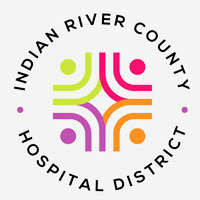 Hospital District debates its ability to tax and spend
Hospital District debates its ability to tax and spend
STORY BY LISA ZAHNER (Week of July 3, 2025)
The seven elected trustees of the Indian River County Hospital District seem conflicted about how closely they need to follow the 66-year-old state law that gave the district the power to tax county residents and spend that money on healthcare needs.
In the lead-up to this summer’s budget talks beginning July 10, Trustee Paul Westcott researched the 1959 special act of the Florida Legislature which brought the hospital district into being and found a narrow definition of how the district can allocate taxpayer dollars.
“It uses the phrase health and medical services,” Westcott shared with his fellow trustees, reading from the act. “Which shall mean items or services provided by or under the supervision of a physician or other person trained or licensed to render health care necessary services.
“So that seems to be a narrower approach than I've been using,” he said.
“I went back and reviewed the grants in terms of the special act and I found $3.9 million in funding that might not be allowed by what is defined in the special act,” Westcott later told Vero Beach 32963.
At its Wednesday chairman’s meeting, the trustees thanked Westcott for reminding them of the language in the special act.
“I think we really do have to start to look critically at things that don't align with the special act and don't align with our priorities,” Trustee Dr. Chuck Mackett said. Other trustees echoed Mackett’s sentiment.
But a day later, at the Hospital District’s monthly business meeting which Westcott missed due to a family emergency, the tone of the discussion seemed to have shifted somewhat overnight.
Chairman Dr. Bill Cooney emphasized the importance of sticking as closely as possible to the district’s mission, and said he hoped to continue the discussion Westcott started, but Cooney’s comment affirming a stricter read of the special act sparked some pushback.
Trustee Michael Kint said he thought the pendulum might have “swung a little bit too far, and we’re in the process of trying to pull it back.” But he added, “It’s a matter of interpretation. It’s a matter of degree,” and asked the district’s legal counsel Jennifer Peshke to weigh in on the phrase health and medical services.
“It’s up to interpretation. It’s wide. It’s broad. It is not narrow and limited in many ways on purpose,” Peshke said. “One person's definition of health and medical services and concept of what that encompasses, this might be very different than the person sitting next to you.”
And she added, “things that are important for health and medical services weren’t even on our radar seven years ago or eight years ago. So I think it’s a moving target. I don’t think it is a static thing.”
Trustee Allen Jones, who served as district treasurer for eight years previous to his 2024 return to the board, said that while it doesn’t hurt to review the wording of the special act once in a while, Westcott did not present anything new.
Jones said he felt the trustees are in compliance with a broad interpretation of the special act. He said he did his own rough calculation and found $2.9 million in requests that might not meet the strict letter of the special act, but that trustees have the freedom to interpret the act.
The special act contains a paragraph which states, “The Board of Trustees is further authorized and empowered to expend district funds for any purpose related to or supportive of the authorized activities of the district.”
Since Cleveland Clinic took over the Vero hospital a half dozen years ago, the Hospital District has transformed from being primarily a tax-collecting body aimed at funding the care of the county’s poor and uninsured at the hospital to a grant-making agency doling out tax dollars to local nonprofits.
District trustees in recent years have provided funding to programs like Meals on Wheels, adult daycare as a respite for caregivers, a literacy program aimed at helping people understand healthcare documents and instructions, and various volunteer-driven programs which do not involve providing healthcare services under a doctor’s supervision.
This expansion of funding – some call it mission creep – resulted in a 61 percent increase in the Hospital District’s property tax rate in 2024.
This year, 26 agencies have requested $21 million for 59 different programs. The district is not funding any new agencies this year, as it rejected 11 proposals from nonprofit organizations not already on the roster.
Westcott emphasized that he was not advocating any drastic cutoff of funding to any of the agencies, but suggested the trustees wean programs that may not comply with the statute off district funding gradually because special taxing districts are under the microscope with regulators.
The district will set its maximum property tax rate and consider its budget in July for tax notices to arrive in August.



